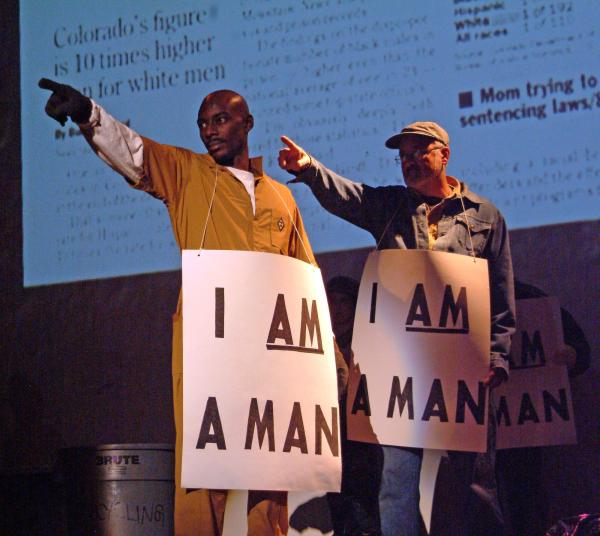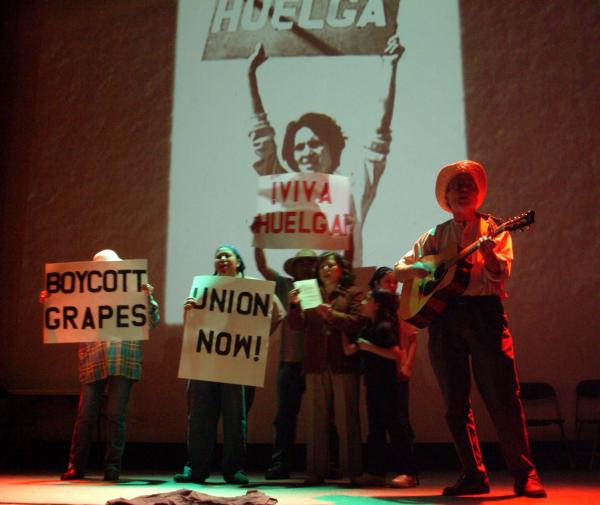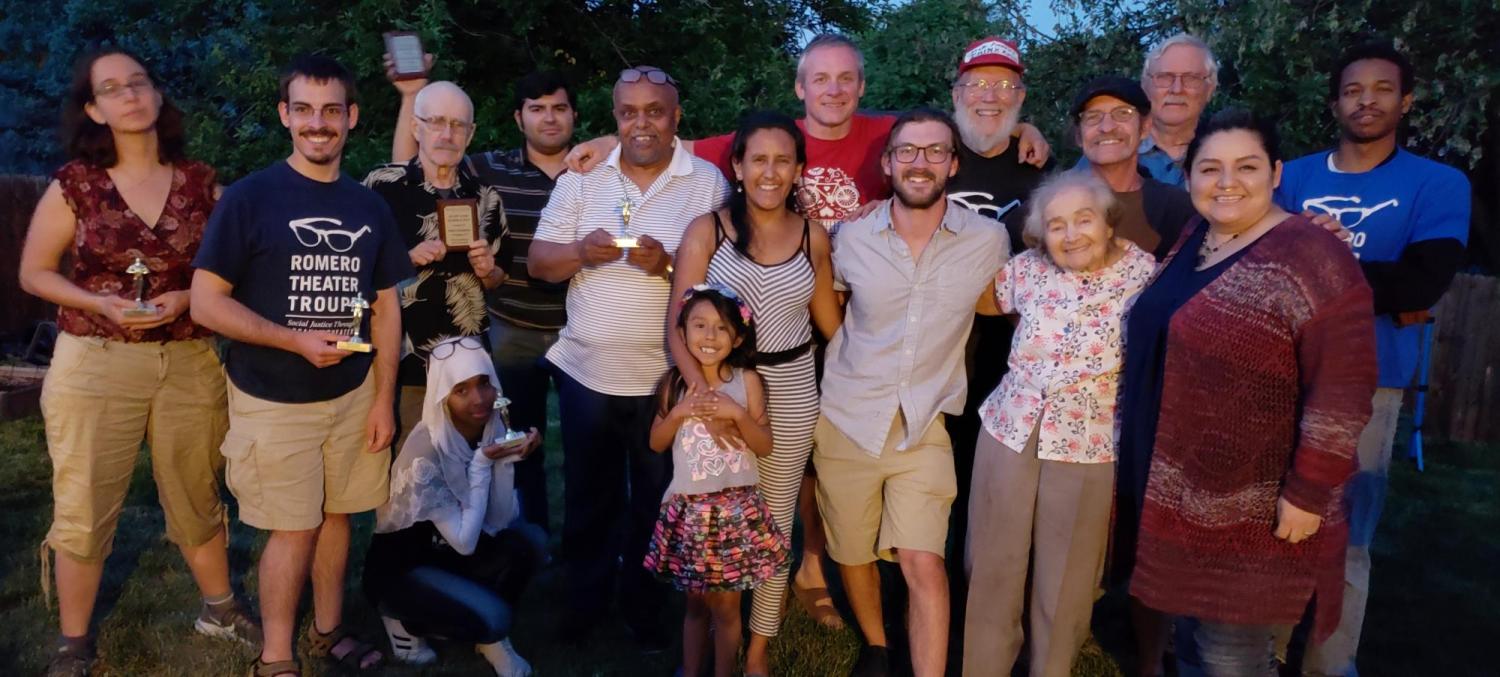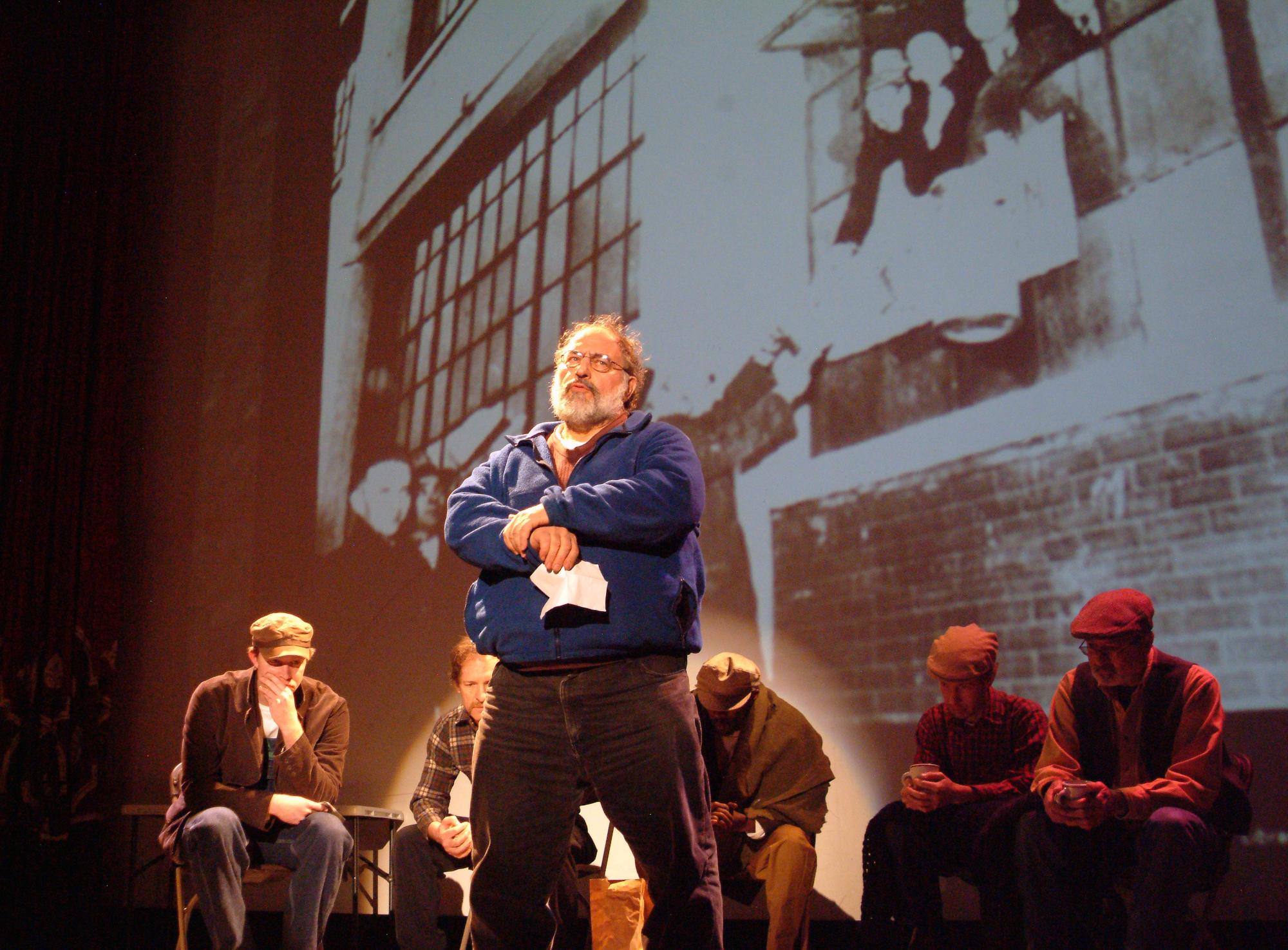
On a quiet Sunday afternoon, tucked away in a classroom at CU Denver's North Classroom building, laughter mingles with tears. Chairs form a circle. Voices rise, not in performance just yet, but in honest updates-little windows into each participant's life.
This is how the Romero Troupe begins rehearsal. This is how a movement sustains itself for 20 years-through community, courage, and stories that refuse to be erased.
As the Romero Troupe celebrates its 20th anniversary, it's not just marking time. It's affirming a radical truth: that ordinary people, with no formal training or funding, can change how we learn, connect, and act. And that sometimes, the most powerful form of resistance is telling your story out loud.
From Lecture Hall to Living History
The seed for the Romero Troupe was planted in 1999, not in a theater, but in a CU Denver lecture hall. Professor Jim Walsh, then a young history instructor, found himself frustrated by traditional teaching methods. "Memorizing dates and names didn't move the needle," he said. "It didn't do anything for anyone".
So he flipped the script- literally. Walsh invited students to transform historical events into theater. The impact was immediate. "The students in the back of the room, the quiet ones, started emerging as leaders," he recalled. "It was a new kind of learning."
This experiment became a defining feature of his classes, where historical memory met embodied storytelling. But Walsh couldn't shake one question: If this works so well in a classroom, what about the community?
A Name Born of Purpose
In 2005, Walsh assembled a handful of former students and formed a troupe to perform a play commemorating Archbishop Óscar Romero. At the last minute, they were asked what the group was called. "The Romero Troupe," Walsh said on instinct-and the name stuck.
It was fitting. Like its namesake, who shifted from silence to resistance in the face of oppression, the troupe committed itself to "preserving histories that are ignored or erased." Their subjects: immigrant rights, labor movements, LGBTQ+ experiences, environmental justice, and more.
Since then, more than 650 individuals-students, faculty, community members-have passed through the Romero Troupe. Over 250 of them started as CU Denver students. For many, it was their first time on stage. For some, it was the first time their story had been heard.
Education That Works for All
CU Denver serves a student body that defies traditional molds. First-generation college-goers, working parents, students balancing jobs with dreams. The Romero Troupe reflects that ethos.
For Walsh, who comes from a family of steelworkers and was a first generation college student, traditional academia often felt alien. "Higher ed was always a foreign place," he said. "I wanted to create a classroom where people from working-class backgrounds felt like it was real."
That desire birthed more than a troupe-it created a space where education became accessible, creative, and deeply personal. Where theory met practice. Where students didn't just study civic engagement-they lived it.
A Theater Without a Stage— or a Script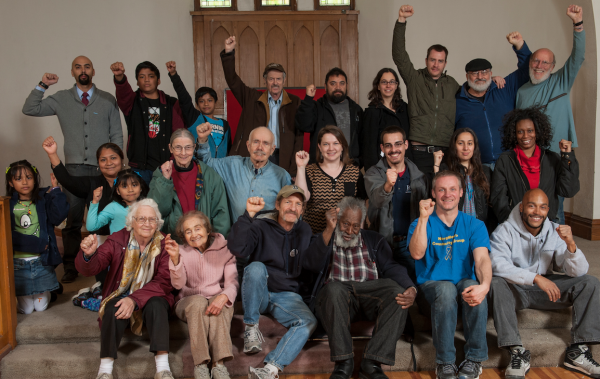
Forget everything you know about theater. The Romero Troupe doesn't have a director. Or a budget. Or even a formal script.
Instead, they practice what Walsh calls "organic theater": unscripted, unpolished, and deeply collaborative. Every decision is made together. "The person whose story we're telling becomes the director of that piece," said Walsh. "And the rest of us help shape it."
The result is raw, powerful, and deeply human. Audience members don't just sit and watch-they participate. They laugh, cry, cheer, even hiss at the villains. At times, toddlers run across the stage. "No one minds," Walsh smiled. "It's not about perfection. It's about presence."
Real People, Real Impacts
Romero performances aren't theater for theater's sake. They're acts of resistance and reclamation.
When CU Denver custodians approached the troupe to share their experiences with workplace abuse, the troupe worked with them for weeks to develop skits. The result: a jam-packed performance on campus that brought tears and awareness in equal measure.
Jeanette Vizguerra, now nationally recognized for her immigration activism, has performed her story with the troupe for 15 years. She once lived in a church basement for three years to avoid deportation. Her performances humanize the immigration crisis in ways no policy brief could.
From labor strikes to LGBTQ+ rights, from Flint, Michigan to Denver's own Rocky Flats, the troupe unearths buried stories and makes them sing.
The Romero Troupe serves as a living bridge between CU Denver and the broader Denver community, reaching corners of the city where the university's presence had never been felt before. Performing in union halls, church basements, immigrant centers, and public parks, the troupe brings the spirit of higher education directly to the people. In doing so, they challenge the traditional boundaries of academia and expose communities to a new kind of university-one rooted not in ivory towers, but in storytelling, solidarity, and shared struggle. This grassroots engagement is not just outreach-it's relationship-building that redefines what a university can be: accessible, responsive, and deeply human.
Theater as Safe Harbor
The troupe's diversity is expansive-not just in race or background, but in age, experience, and status. One of their most memorable members joined at age 88 and performed until her passing at 97. "She wasn't just acting," said Walsh. "She was fierce."
What makes the Romero Troupe unique isn't just what they perform-but how they gather. Rehearsals begin with a circle and a candle, a sacred space where members share updates from their lives. Some confide personal losses, others offer triumphs. Always, they are met with compassion.
There are no attendance requirements. No shame if you leave, no questions if you return. "How many organizations do you see that in?" Walsh asked. "That kind of openness is rare-and it's everything."
An Impervious Model
One reason the troupe has endured is because it is virtually unfundable-and that's by design.
They've never applied for a grant. The troupe is an all-volunteer organization. They rely on community support: borrowed spaces, donated props, shared pizzas. Their shows are always free. Any donations go directly to advocacy organizations like El Centro Humanitario, a partner and fiscal sponsor.
"When COVID hit, we paused," said Walsh. "We didn't have bills. We didn't have to worry. That meant we could put our energy into the art."
That freedom has allowed them to focus on mission over metrics. To say what needs saying. To support those who are silenced. "No one can cut our funding," Walsh laughed. "That's the most beautiful thing."
Challenges, Resistance, and Resilience
Over the years, the troupe has faced its share of adversity. From internal grief-such as the death of Walsh's co-founder and mentor-to external threats like immigration enforcement, budget cuts, and political backlash, the troupe has stood firm.
In fact, when Walsh's contract was once threatened due to his activism, it was the students-many of them Romero Troupe members-who rallied in his defense. Their advocacy led the university dean to overrule the decision. "The Romero Troupe saved my job," Walsh said simply.
That same spirit-of speaking out, showing up, and standing with one another-defines the troupe's legacy.
Passing the Torch, Not the Flame
Now, after 27 years of teaching and two decades at the helm of the Romero Troupe, Walsh is stepping back. The group met without him for the first time recently-a moment filled with bittersweet reflection and quiet pride.
"It's hard," he admitted. "But necessary. As long as I'm in the room, everyone looks to me. Now, new leadership can emerge."
He's not worried about the troupe's future. "It'll never die. It's too grassroots. It's more like the soil than the grass," he said.
What he hopes, though, is that CU Denver continues to recognize the magic happening within its own walls. For 20 years, students have rehearsed in North Classroom, transforming sterile lecture halls into sanctuaries of expression. "That space has held our laughter, our tears, our truths," he said. "UCD should be proud of that."
A Moment That Will Always Matter
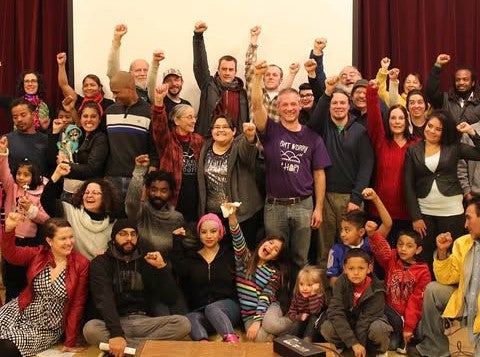 The Romero Troupe is more than a theater group. It is a home, a haven, a hammer breaking the silence. It's where first-gen students become storytellers, where community members find their voice, where learning leaps off the page and into the soul.
The Romero Troupe is more than a theater group. It is a home, a haven, a hammer breaking the silence. It's where first-gen students become storytellers, where community members find their voice, where learning leaps off the page and into the soul.
Its story is CU Denver's story: bold, inclusive, deeply rooted in real life.
As Walsh puts it, "The real show isn't the performance. The real show is that 45 people of all backgrounds have come together in solidarity to make something beautiful. That's what people come to see."
And for 20 years, they've been seeing-and feeling-that beauty.

